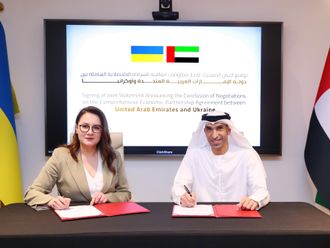Long-brewing disputes between Sudan and the newly independent South Sudan have come to the boil recently with the occupation of the oil fields in Higlig by the South Sudan forces and the counter-offensive by Sudan to dislodge them.
After years of strife, Sudan agreed to a period of transition to be followed by a referendum to decide the fate of the South. Independence was never in doubt especially because the South is rich in oil and gas resources and the strife has exacerbated differences on various other issues across the south-north divide.
Transit fee
While most oil production is in the South, the pipeline, refineries and the port and loading facilities are all in the north. Therefore, there is reason for the two sides to cooperate. During the interim period Sudan was sharing oil revenue equally with the South but, after independence, a negotiated transit fee was to be the new arrangement. Negotiations with the help of the African Union failed to bridge the differences because the South refused to share part of the debt of Sudan and refused to give other compensations to the north and refused the transit fee of $36 a barrel. South Sudan decided to follow a policy of ‘on me and my enemies' and stopped oil production though it depends on oil exports for 98 per cent of its income.
The United Nations, the African Union and the United States all condemned South Sudan for sending troops into Heglig which the Permanent Court of Arbitration ruled in 2009 was outside the borders of the contested area of Abyei that lies between Sudan and South Sudan, and thus belonged to the North. The dispute soon erupted into all-out war and no one knows whether hostilities will continue after the South Sudan forces were dislodged from Higlig, the region producing almost 50,000 barrels a day, or almost half of the production left to the North after the division of the country.
Sudan discovered oil in its central and southern regions in the early 1990s. Production rose sharply in 1999 after the completion of the pipeline to Port Sudan on the Red Sea. The pipeline of 1,600 kilometres and terminal of three million barrels storage capacity was probably the largest project in Sudan's recent history. Oil reserve rose to 6.7 billion barrels and production reached 486,000 barrels a day in 2010. Sudan however remains largely unexplored because most of recent times there was embargoes on the country which discouraged companies from taking risks there. After the South's independence, Sudan announced many curbs on exploration in its attempt to find more oil to substitute for lost revenues of the past.
Domestic consumption
Sudan and South Sudan domestic consumption of oil products is close to 100,000 barrels a day which is a great expansion from 25,000 barrels a day in 1997. The Sudanese crude oil is waxy in character and contains no sulphur and, therefore, requires simple refineries to generate acceptably good products.
The shutdown of production since January is said to have ‘amounted into committing economic suicide by South Sudan' though it will be tough for the North as well.
But South Sudan has no alternative in place and the nearest one — a pipeline to the port of Lamu or Mombasa in Kenya — could take 18 months as estimated by the South Sudan government. Other sources say it could be three years before a pipeline is ready. In either case, the result could be catastrophic for the economy of the South. The pipeline would cost $1.5 billion (Dh5.5 billion) and it is said that South Sudan is considering another pipeline to Ethiopia and Djibouti. These pipelines, if ever they are built, will remove another reason for peace between the two countries.
Export impact
Due to its quality and location, the oil from Sudan has been a favourite for Asian refiners. The loss of exports from the South, though small in the larger context of the world oil market has affected them and they are even reluctant to lift what is in storage for the fear of litigation.
Considering that both countries are poor, that the North has peacefully allowed the South to secede, that continued use of the available infrastructure is vital and that future peace and cooperation is important for both sides, it is time to believe and work for interdependence.
The writer is the former head of the Energy Studies Department at the Opec Secretariat, Vienna.












